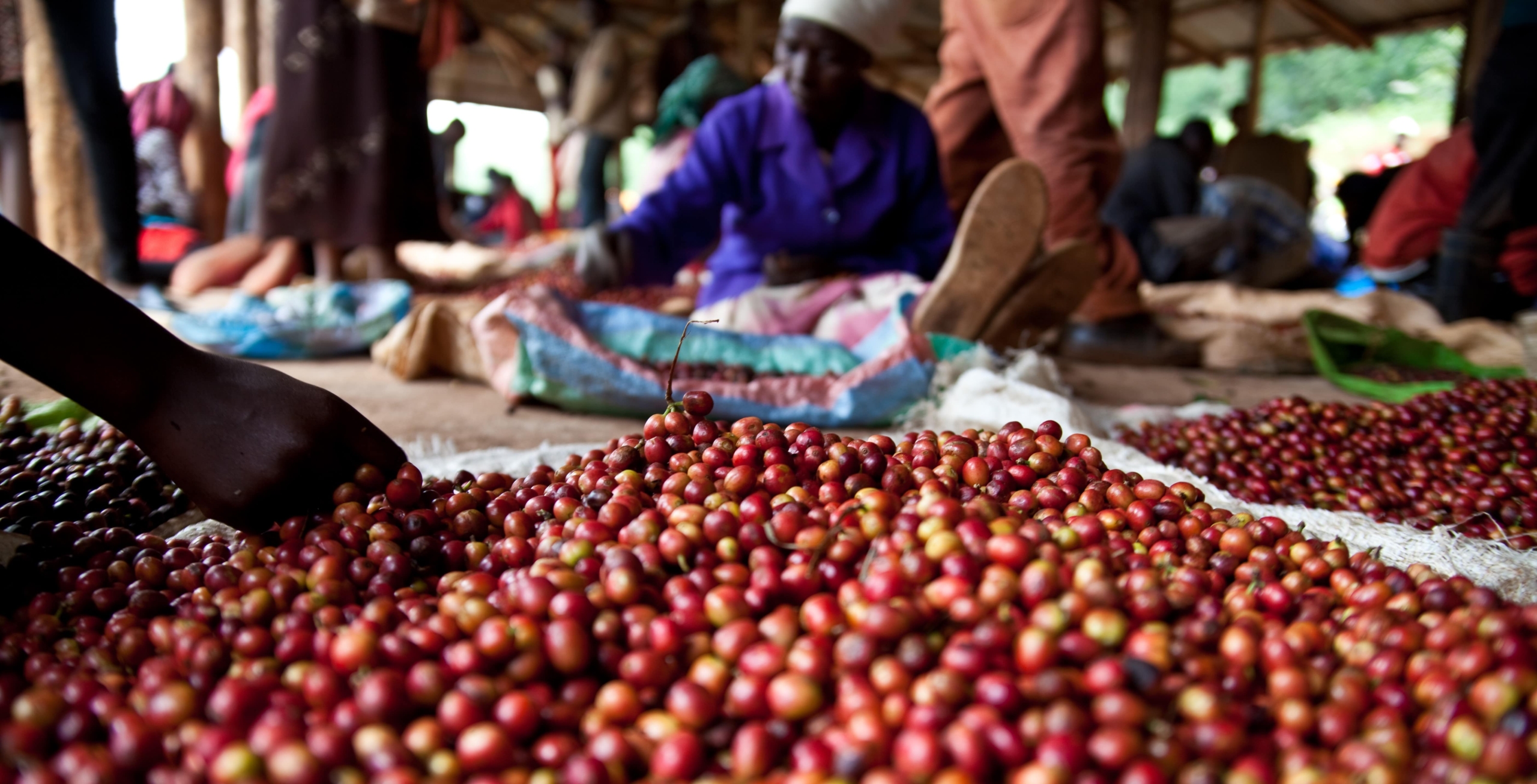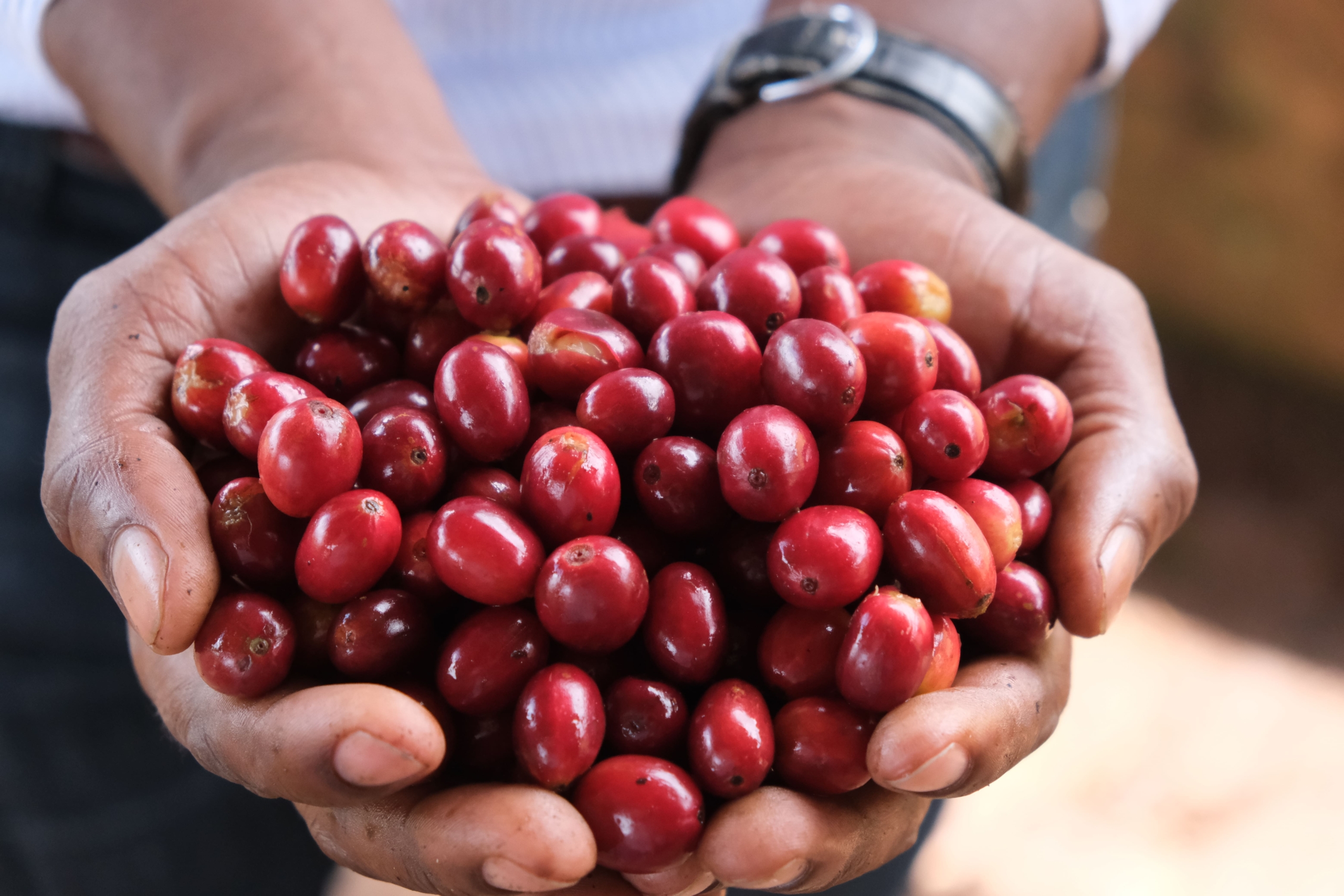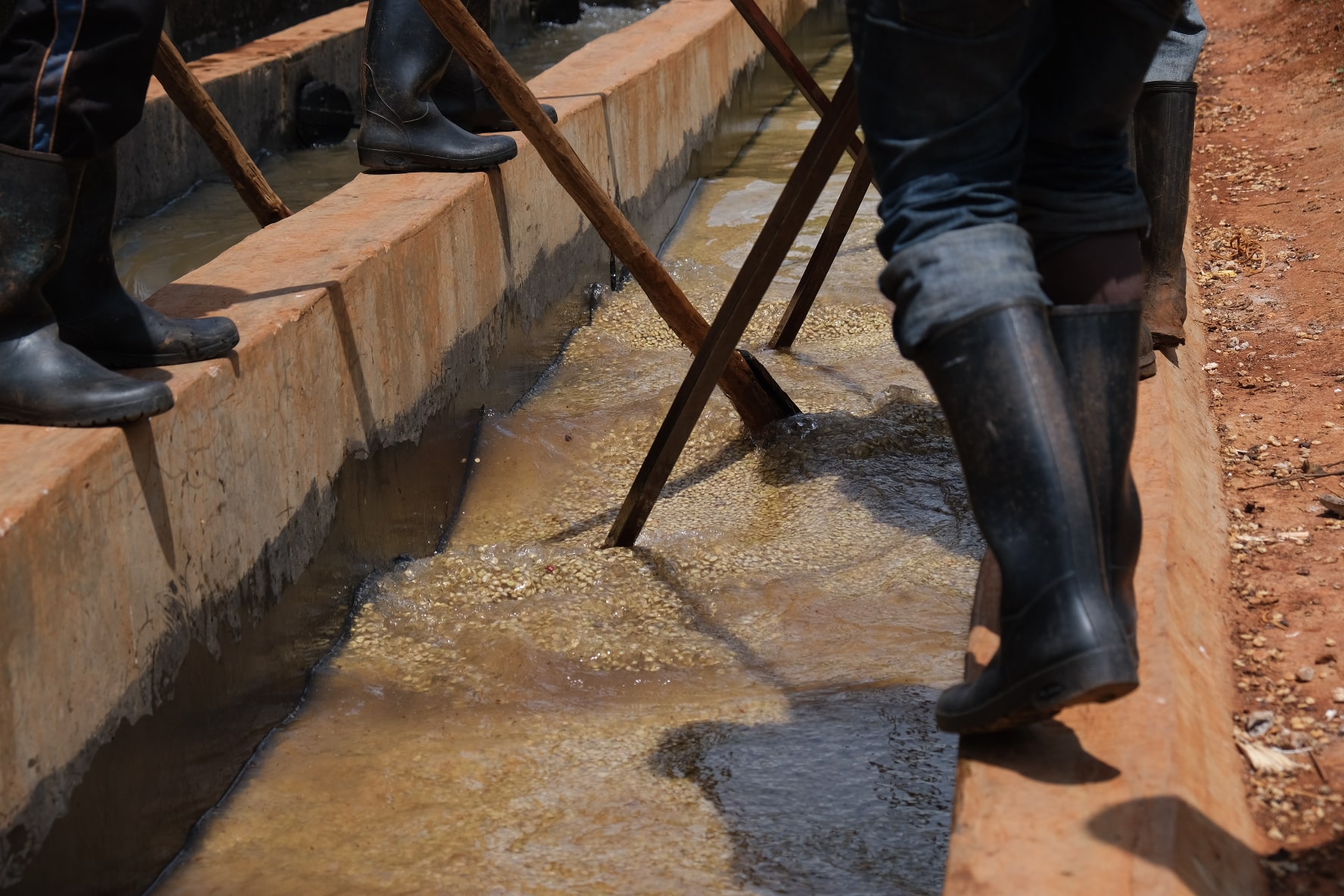Kenya AB coffee is a standout offering known for its vibrant acidity, juicy body, and complex flavor profile. Grown at high altitudes in the fertile volcanic soils of Kenya’s central highlands, this coffee is meticulously handpicked and processed to highlight its bright citrus notes, rich berry undertones, and wine-like finish.
The History of Coffee in Kenya
Although Kenya shares a border with Ethiopia—the birthplace of coffee—coffee cultivation in Kenya began relatively late, around 1893. It was introduced by French missionaries who brought Bourbon varietals from Réunion Island. Under British colonial rule, coffee quickly became a key export crop, but commercial cultivation was largely restricted to European settlers.
Following Kenya’s independence in 1963, coffee farming was opened up to local smallholder farmers, leading to the formation of cooperative societies and the development of a uniquely transparent auction system. This system, along with Kenya’s high-altitude farms, rich volcanic soil, and ideal climate, helped establish the country’s global reputation for producing some of the finest washed Arabica coffees in the world.
Today, Kenyan coffee is prized for its bright acidity, full-bodied flavor, and complex fruit notes—qualities that reflect both the country’s natural terroir and its legacy of careful processing and grading.
Understanding Coffee Grades
The AB grade refers to bean size 15/16. Specifically, the beans will pass through a size 16 screen, but not a 15. (Screens have holes measured in 1/64-inch increments.) AB are considered high quality, delivering exceptional flavor in the cup.



